ENGAGE.EU: European testing ground for more cooperation and exchange
An European university where students, researchers, and professionals collaborate in various constellations to address current relevant societal challenges. That’s ENGAGE.EU in a nutshell: an alliance of seven collaborating universities in Tilburg, Mannheim, Bergen, Rome, Sofia, Toulouse, and Vienna. In the past eighteen months, a lot of work has been done behind the scenes. We spoke to a number of committed driving forces who share their enthusiasm and optimism and provide an insight look at the program for the coming period.
Important step in internationalization
Given his role as Dean of the Tilburg School of Humanities and Digital Sciences, Boudewijn Haverkort is closely involved in ENGAGE.EU. “Participating in ENGAGE.EU is an important step in the internationalization process at Tilburg University. It means that we can offer our students a better, more comprehensive studying experience. For our researchers, it offers new perspectives in their research if they can collaborate with academics from other countries and cultures and exchange knowledge with them. For professionals, it means opportunities to broaden and deepen their knowledge. For me personally, it is important that ENGAGE makes studying abroad accessible to a large group of students. Thanks to ENGAGE.EU, they will be able to broaden their horizon in a way that matches their needs and ambitions.”
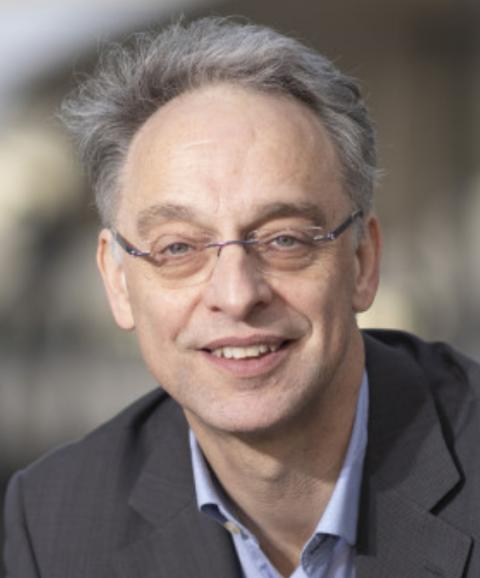
We can offer our students a better, more comprehensive studying experience.
Boudewijn Haverkort
Connection and co-creation
Guido van Leerzem is program manager ENGAGE.EU. “International forms of cooperation are far from foreign to our university. In ENGAGE, we give them more structure as well as a sound basis. We develop and test new forms of collaboration to make it easier for students and staff to exchange. We are in a select group. 41 alliances exist with a total of 28 institutions, which is about 5 percent of European universities. And although that percentage is higher in the Netherlands, we are certainly doing something unusual. The seven affiliated universities have a similar outlook on academia as we do. ENGAGE fosters connection among universities, stimulates co-creation between all groups, the various universities and Schools and among education, research, and society. It contributes to the quality and attractiveness of European Higher Education and promotes European values and identity.
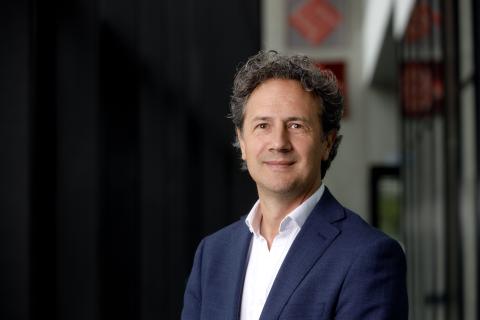
Guido van Leerzem
Connection
Participation in ENGAGE also leads to more collaboration among our own Schools. Guido: “And among universities and social partners. As a result, it acts as a catalyst in many more areas. All the connections will be made and come together within ENGAGE.EU.”
Innovation with new forms of education
As a member of the steering group, Jörg Raab has been involved in developing courses in the context of ENGAGE.EU from the beginning. “With ENGAGE, we are taking the next step in international student mobility, which was initiated with the Erasmus scholarship program, under which students get financial support so they can do part of their studies abroad. One of the powers of ENGAGE is that many different teaching methods are available: online, offline, and blended learning. We can experiment with these methods and introduce innovations. The ENGAGE partners will be offering courses whereby a student takes a course online and concludes it with a week in the city of one of our partner universities. With this form of blended learning, we can lower the threshold for students who might be unwilling or unable to go abroad for all of six months.”
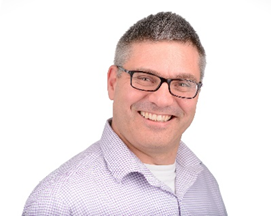
With ENGAGE, we are taking the next step in international student mobility
Jörg Raab
Thematic modules
Jörg: “The ENGAGE partner universities have set up thematic modules at Bachelor’s and Master’s levels, for instance, ‘Marketing in the Age of Sustainability’, ‘Futures of Europe’, ‘Smart Cities’ and ‘Climate Justice’, current themes that we can explore in these courses from various international, but also cultural and political perspectives.”
Registering for ENGAGE.EU modules and courses
“In July, LUISS in Rome is the first university to organize an ENGAGE Summer School, on the theme of ‘The Digitalization of Society’. Starting the next academic year, ten more modules will become available: six at a Master’s level and four at a Bachelor’s level. Registering for the online modules and courses is possible from June 1 at the different partner universities. The relevant information, including all course-related information will be available at https://engageuniversity.eu/for-learners/. And there will be a joint honors program at Master's level on Digital Transformation. Master students can follow this in addition to their regular Master. Furthermore, many modules are currently being developed, e.g., on climate change and sustainable management. We expect to be able to offer these in the academic years 2023-2024 and 2024-2025.”
Common course catalog as a signpost
In addition to the education programs, the Common Course Catalog will also come online. “Students can use this overview to check what programs, webinars, conferences, etc., are taking place where and when. This will lower the threshold for participation and will make it easier for students to register.”
Research and innovation
As a task lead, James Small is closely involved in building new ENGAGE networks for researchers around societal challenge themes.
“ENGAGE started out as a platform for education. However, we soon realized that education and research go hand in hand. Within our team, we want to create a climate that fosters new connections and collaborations in many different fields of research. We aim to bring researchers into contact with each other to find solutions for international social challenges. We do not only want to do so from different institutions, countries, and cultures, but also from a wide variety of disciplines. By working together on research, we can accelerate change. There are urgent challenges that we face in responding to climate change and migration, to name just a few. If we connect and collaborate via a platform like ENGAGE, we can move faster towards solutions and can contribute to policy making and the international debate.”
James Small
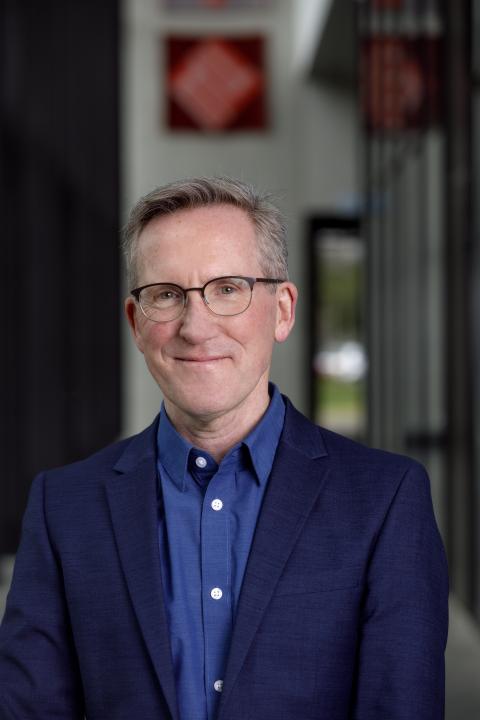
Joint research topics
Societal challenge focused research topics are a good fit with the disciplines of the various partner universities. “For instance, international economic issues related to a fair distribution of wealth and job security, legal issues related to inequality, gender and racial injustice, digitalization and its impact on work and privacy. But also, more sociological topics and public issues stemming from the aging population, wellbeing or migration, and fundamental issue such as hunger, food insecurity, poverty, access to education and the climate crisis.”
Digital infrastructure
Part of James’ work is co-creating a digital infrastructure for researchers. “We want to build a platform and use it to stimulate international, multidisciplinary collaboration and to accelerate research and innovation. It will be the place to share ideas and data, to search for people and ways to collaborate, and point researchers the way towards funding. Our ENGAGE.EU community will help researchers to see and share topic relevant information on forthcoming webinars, seminars, think tanks, and conferences. The platform will also involve societal and business partners, who can contribute to research projects and with whom we can connect and build consortium for funding applications.”
Innovating together
When new partnership lead to intensive collaboration, on-site events will also be organized. “It is important that people meet each other in person and we will help, which form will be most suitable – a conference, a seminar, a think tank – will be decided from one research project to the next. At the moment, we are mainly busy getting a stable system up and running. We are giving shape to a new, innovative form of collaboration that is relevant for the researchers of all partners, co-creation is important, and we look to the research community for their insights into what they value when collaborating. With ENGAGE, we are building a future of international research and it is great to be part of that.”
Social responsibility
Marieke Schoots is a work package lead on ‘Societal outreach’, aimed at reinforcing social responsibility.
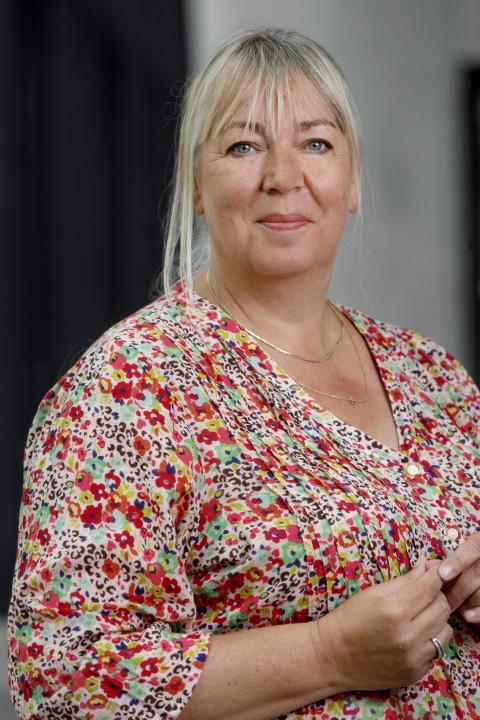
Marieke Schoots
“It is no coincidence that we have a leading role within this part of the program: as a university, we have been working intensively on this for some time now. We are constantly looking for ways to include society in our education and research. Apart from being valuable for students and researchers, ENGAGE also clearly has added value for society, including professionals. Via ENGAGE, it is also possible for them to develop internationally and to build up knowledge.” In recent months, Marieke’s team have been working on a framework for students to help them develop an ‘innopreneurial’ mindset: it is a mix of innovation-orientedness and entrepreneurship. “Now that the framework is up, we will continue with targeted activities.”
On Expedition
Marieke: “We have created different labs in which education, science, and society come together to collaborate on different social issues. In the context of the ENGAGE.EU labs, we are developing various activities, including the ENGAGE.EU Expeditions. The first is planned in Tilburg, from July 10 to 15. Students from the different universities will gather to immerse themselves in the theme of ‘Social & Just Energy Transition’ for a week. Based on real-life cases, submitted by our social partners, they will work on solution approaches, together with experts from the university as well as professionals from the field. The researchers provide input. Students not only learn a lot about the themes, they are also taught new skills, for instance, design thinking, prototyping, and pitching an idea. It is a different way of learning than just going to class. Besides the international experience, that is precisely the added value of an Expedition.”
Committed social partners
The social partners for the Tilburg Expedition are the City of Tilburg, research agency Het PON TELOS, and economic development partner Midpoint Brabant. “It works both ways: these organizations benefit from the fresh – international and multidisciplinary – perspective of our students. We benefit from their knowledge and expertise where the different issues are concerned.”
Unique learning experience
The registration deadline for the Tilburg ENGAGE.EU Expedition is June 10. In the Fall, there will be two Expeditions, in Toulouse and Mannheim. Marieke is enthusiastic and is confident that students will be, too. “It is a completely different learning experience and therefore very valuable. The Expedition is aimed at Master’s students and third-year Bachelor’s students of all disciplines. The more disciplines are represented, the better! It is an absolute must for students who like to think out of the box, are eager to gain a new learning experience, and want to build an international network.”
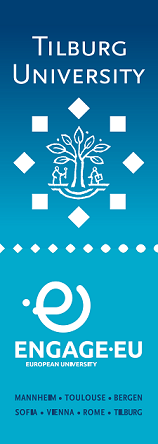
Discover ENGAGE.EU
ENGAGE.EU brings together more than 100,000 students, academics and staff from seven leading universities. The alliance offers unique opportunities to educate and inspire a new generation of citizens and to lay the groundwork for more engaged and effective research and innovation ecosystems.
Date of publication: 2 June 2022
